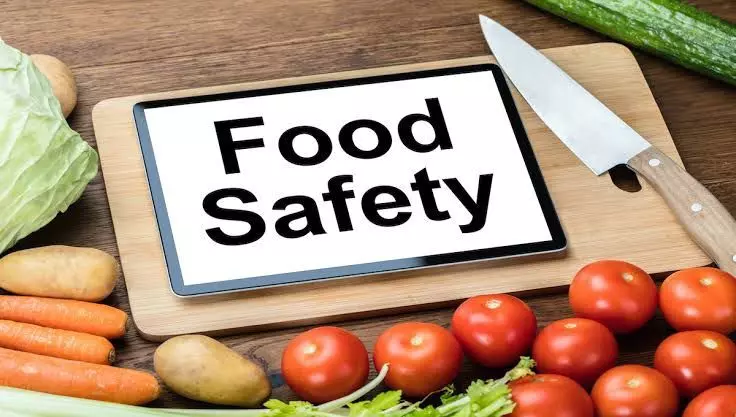ICMR-NIN scientist Dr S N Sinha wins UK’s RSC fellowship for food safety, research
Dr Sinha had also developed a new compound gametocytocidal, which surpasses primaquine in both safety and efficacy for the treatment of malaria
By Sulogna Mehta
Hyderabad: Dr Sukesh Narayan Sinha, Scientist G and Head of the Food Safety division in Indian Council of Medical Research (ICMR)-National Institute of Nutrition (NIN), Hyderabad, has been awarded United Kindom's Royal Society of Chemistry (RSC) fellowship.
He has been granted the fellowship for his life-long contribution to the field of food safety and research.
A more effective & less toxic compound to treat malaria
Through his research on pesticide and chemical contamination, Dr Sinha has made a significant contribution to the field of Food Safety. He had also developed a new compound gametocytocidal, which surpasses primaquine in both safety and efficacy for the treatment of malaria. “In the year 2000, we developed this new compound, which is a substitute for primaquine, and got a patent for it. It is three to four times more active and less toxic than primaquine, used in malaria treatment,” said Dr Sinha.
Helped set up Maximum Residue Limits (MRL) of pesticides in carbonated beverages
Dr Sinha has also established a critical health risk assessment framework for setting Maximum Residue Limits (MRL) of pesticides in carbonated beverages, which has been adopted by the Joint Parliament Committee, Government of India to monitor pesticide residues in ingredients like sugar, ensuring higher standards and bolstering exports.
“The Joint Parliamentary Committee was constituted to find out the maximum residue limit in soft drinks as well as fix the standards for packaged drinking water and also find out whether sugar-cool drinks are contaminated from the usage of Indian sugar by the carbonated beverage company. The findings suggested that sugar was free from pesticides, which strengthened the export quality and enhanced the economy of the country,” said Dr Sinha.
Helped ban pesticide Endosulfan, detected chemicals in Eluru water contamination
However, certain harmful pesticides like Endosulfan, which adversely affected the endocrine system were banned in 2011 by the Supreme Court based on the ICMR-NIOH (National Institute of Occupational Health) report, where Dr Sinha was a group member. Towards the end of December 2020, hundreds of people in Eluru town of Andhra Pradesh fell ill due to drinking water contamination. Apart from heavy metals, a high concentration of Triazophos pesticide was found in human blood as well as the drinking water, which was the main cause of the disaster. Dr Sinha was part of the team that was sent to study the cause of water contamination in Eluru.
Developed new biomarkers to assess exposure to toxic pesticides
The scientist’s work also included the development of new biomarkers for estimating acetylcholinesterase enzymes and toxicants, which play a pivotal role in monitoring exposure to organophosphate (certain chemical pesticides). “1-Napthol was introduced as a new biomarker for exposure assessment of pesticides, chemical warfare, and of some metals. Using this biomarker, we can promptly find out about the exposure or contamination of the harmful chemicals/pesticides with the blood and provide the necessary treatment within 10 minutes,” informed Dr Sinha.
Dr Sinha has published more than 80 research papers in national and international peer-reviewed journals. He has also recently been elected a fellow of the National Academy of Medical Sciences (NAMS), India